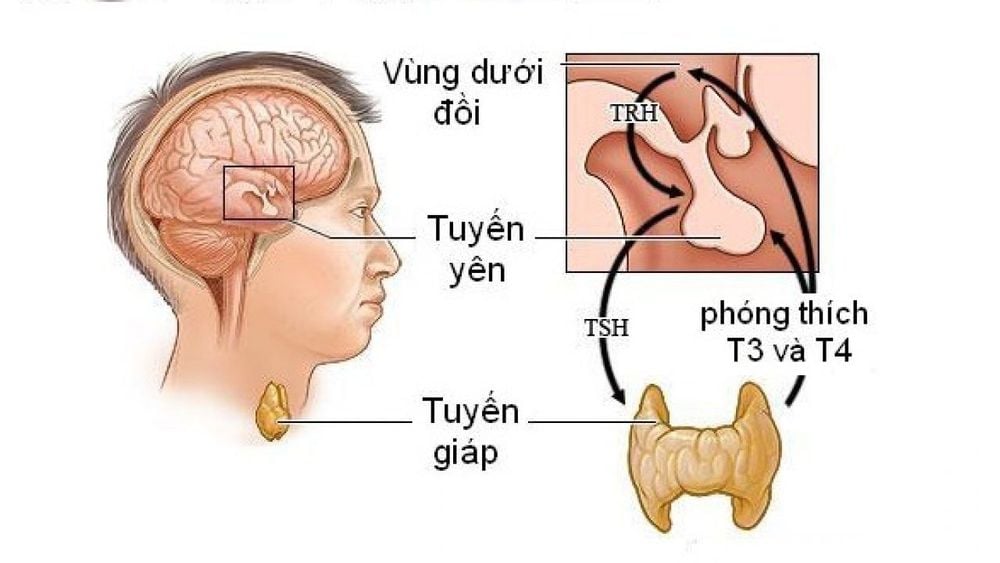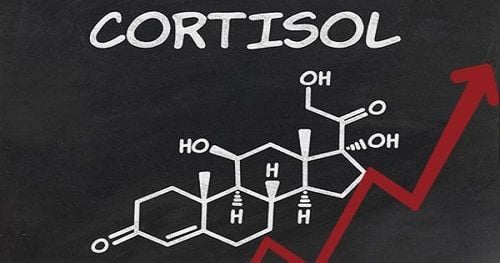This is an automatically translated article.
In today's life, there are so many things that cause us to experience long-term stress into chronic stress. When you're stressed, your body releases cortisol, known as the stress hormone. Cortisol can make you crave sugary, salty, and fatty foods. As a result, stress affects patterns and overall health.
1. What is stress?
Stress is the body's response to a change or a challenge. In the short term, stress can be helpful. It keeps you awake and gives you energy to get things done. But long-term stress can lead to serious health problems.
There are three main types of stress that can occur in our daily lives:
Waking up stress (e.g. you just had an argument, got stuck in traffic or a short event just happened) acute (frequent acute events such as deadlines to complete work) Chronic stress (persistent events such as job loss, physical or emotional abuse, substance abuse) or family conflict). Many of us may experience a combination of these three types.
2. How does stress happen?
Our bodies respond to all types of stress through the same mechanism, which occurs regardless of whether the stress arises from an actual or perceived event. Both acute and chronic stressors induce a “fight-or-flight” response. The released hormones trigger some action within seconds: pumping blood and oxygen rapidly to our cells, faster heart rate and increased mental alertness. Specifically:

Vùng dưới đồi
A very small area at the base of the brain, called the hypothalamus, begins to respond to and communicate with the body through the autonomic nervous system (ANS). This system regulates involuntary responses such as blood pressure, heart rate, breathing, and digestion. The ANS signals the nerves and the hormone corticotropin to alert the adrenal glands, located on top of each kidney, to release a hormone called adrenaline into the bloodstream. Adrenaline (also known as epinephrine) speeds up the heart rate and raises blood pressure so more blood flows to the muscles and heart to support an energy boost. More oxygen in the blood is available to the heart, lungs, and brain for faster breathing and increased alertness. Even a person's sight and hearing can become sharp. If stress continues, the adrenal glands release another hormone called cortisol, which stimulates the release of glucose into the bloodstream and increases the brain's ability to use glucose for energy. It signals to shut down certain systems in the body to allow the body to focus on the stress response. These systems include digestion, reproduction, and growth. These hormones do not return to normal levels until the stress has passed. If stress doesn't go away, the nervous system continues to trigger physical responses that can eventually lead to inflammation and cell damage. Acute stress and chronic stress repeatedly lead to the risk of health problems, including digestive problems (heartburn, bloating, diarrhea, constipation)
Weight gain Increased blood pressure

Căng thẳng mãn tính có thể xuất hiện các vấn đề về tiêu hóa như táo bón
Chest pain, heart disease Immune system problems Skin conditions Muscle pain (headache, back pain, neck pain) Sleep disruption, insomnia Anxiety, depression
3. The link between stress and eating
Many factors affect the way we eat including stress, fatigue, medications, boredom and even the gut microbiome in the body. Stress has both psychological and physiological effects on appetite. Given the emerging evidence for a two-way connection between our gut and our brain, (the gut-brain axis), there is evidence that not only does stress affect nutrition, but nutrition also affects stress. .
Stress seems to alter overall food intake in one of two ways, leading to an excess or a deficiency. Interesting can be determined by the severity of the stressor. Chronic life stress has been linked to a preference for foods rich in energy and nutrients, such as foods high in sugar and fat. In men, studies have suggested that chronic life stress may be linked to weight gain. Chronic stress is thought to affect up to 25% of the population. For society, chronic stress is a significant health concern, associated with various disease states, including an increased risk of neuropsychiatric disorders such as anxiety and depression.
4. How does stress affect eating?

Căng thẳng mãn tính làm cho nồng độ cortisol tăng cao có thể gây cảm giác thèm ăn
Chronic stress can affect the body's use of calories and nutrients in a variety of ways. It increases the metabolic demands of the body and increases the utilization and excretion of many nutrients. If a person does not follow a nutritionally complete diet, a deficiency can occur. Stress also sets off a chain reaction of behaviors that can negatively affect eating habits, leading to other health problems. Specifically:
Stress requires the body to meet greater demands for oxygen, energy and nutrients. However, people with chronic stress may have excessive cravings for certain foods, such as highly processed snacks or sweets, which are high in fat and calories but low in nutrients. People who feel stressed may not have as much active time to prepare nutritious, well-balanced meals, or may even skip or forget to eat. Stress can disrupt sleep by causing poor sleep or more frequent awakenings, leading to fatigue during the day. To deal with daytime fatigue, people can use energy-boosting stimulants such as caffeine or high-calorie fast food. Studies have found that sleep restriction significantly increases cortisol levels. During periods of acute stress, the hormone adrenaline suppresses appetite. But with chronic stress, elevated cortisol levels can trigger cravings, especially for foods high in sugar, fat, and calories, which can then lead to weight gain.

Cortisol hỗ trợ sự tích tụ mỡ ở vùng bụng làm tăng nguy cơ mắc bệnh tiểu đường tuýp 2
5. Tips to reduce the effects of stress
Although stress is inevitable in life, dealing with stress and its stressors and reacting can help reduce stress. Here are some tips to help you stay away from stress:
Healthy diet : A balanced diet can support a healthy immune system and repair damaged cells. It provides the extra energy needed to deal with stressful events. Early research shows that certain foods like polyunsaturated fats including omega-3 fats and vegetables can help regulate cortisol levels. If you regularly eat fast food because you are too tired or too busy to prepare meals at home, consider meal planning, ensuring a more balanced meal that is healthy and prevents weight gain. Control food intake: Eating when we're stressed, we often eat quickly without paying attention to what we're eating or how much we're eating, which can lead to weight gain. Mindful eating practices combat stress by encouraging deep breathing, thoughtful food choices, focused attention on meals, and slow and thorough chewing of food. This increases mealtime enjoyment and improves digestion. Exercise regularly: Physical activity will help lower blood pressure and stress hormone levels. Aerobic exercise like walking and dancing increases breathing and heart rate so more oxygen reaches cells throughout the body. This relieves tension in the muscles, including the heart.

Tập thể dục thường xuyên sẽ giúp giảm huyết áp và nồng độ hormone căng thẳng
Meditation or deep breathing techniques: Rapid, shallow breathing and erratic thinking occur in response to stress. Therefore, take slow, deep breaths to relieve muscle tension, lower your heart rate, and help calm your mind. Whenever you feel stressed, breathe slowly, focusing on each in-breath and out-breath. Through this simple act, your parasympathetic nervous system kicks in and can help calm you down. In addition, some yoga and tai chi exercises that emphasize deep breathing and focused mind are also helpful. Research has also found that practicing meditation can prolong or prevent the shortening of protein structures called telomeres. Meditation practice has been linked in some studies to greater activity and telomere length in response to reduced anxiety, chronic stress, and cortisol levels.
Mental health counseling or other social support: Feeling alone can add to stress. Find someone you can confide in or a counselor for helpful advice to help you deal with stress. Practice work-life balance: Use vacation and personal time, or just set aside an hour a day. Periodic escape from work pressure can do wonders for stress relief. Schedule fun activities or hobbies at least once a week: Gardening, reading, enjoying music, massage, hiking in nature and cooking a favorite recipe, enjoy with your family are examples to help you reduce stress. Stress can cause heightened feelings of alertness, delay the onset of sleep, and disrupt sleep throughout the night. This can prevent a person from entering a deeper stage of sleep, in which the body repairs and grows tissue and supports a healthy immune system. In particular, REM (rapid eye movement) sleep helps regulate mood and memory. Aim for 7-9 hours of sleep each night by slowing down to about 30 minutes before bed. Managing stress through the other tips listed above can also improve sleep quality. Try to exercise regularly to improve your mental health and find techniques like meditation. Aim to optimize and support the microbiome of eating fermented foods like kefir, steer clear of high-fat foods and instead choose a healthy balanced diet of whole grains, fruits, and vegetables. , vegetables and healthy fats .
When applying stress-reducing methods at home but do not bring positive results, you can go to Vinmec International General Hospital to be examined by experienced and qualified doctors for advice on health issues. the best treatment for your current health problem.
Please dial HOTLINE for more information or register for an appointment HERE. Download MyVinmec app to make appointments faster and to manage your bookings easily.
Source: healthyeatingdr.com -hsph.harvard.edu












